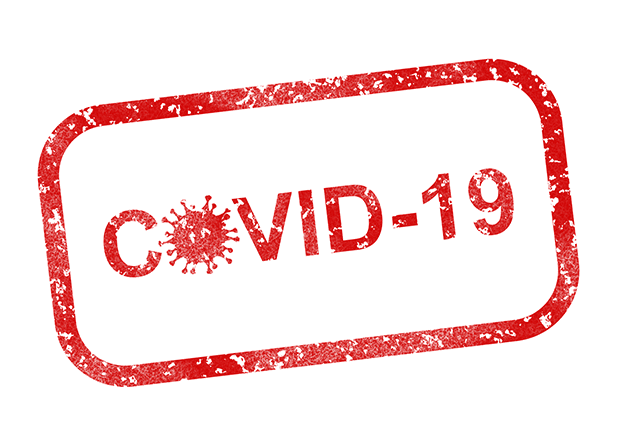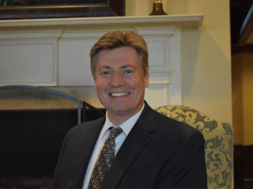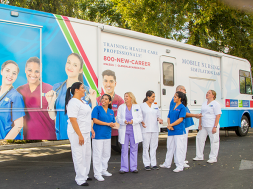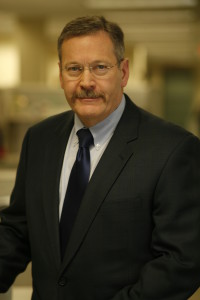
What Academic Leaders Should Learn from the Coronavirus Pandemic
By John King, Ed.D.
When I was a young Boy Scout the scout motto “Be Prepared” was drilled into my head. The message I received was that you never know what is going to happen so you better develop a set of life skills that you could practice and put into practice when unexpectedly needed. As an adult, I realized that the only constant in life was that it will continue to change and that if I wanted to continue to grow and develop as a successful adult I needed to be willing to change with the times. In 2019 I took an interim assignment as Provost at a college and spent most of my time there trying to make people aware of the reality of their current tenuous situation and changing trends in higher education that would impact enrollment, student demographics, their financial situation, and adjustments in teaching and learning modalities. I met a lot of resistance.
Almost two years later that college is realizing that my ideas were not so far-fetched and that they have benefited from the changes that were implemented. Because of those changes, the college was better prepared for an impending storm that would be the coronavirus pandemic.
Today, the world is slowly recovering from the calamity brought about by the coronavirus. Countries are starting to open up. Travel restrictions are being lifted. World economies are recovering. Commerce is picking up. Sporting, entertainment and social events are expanding from their pandemic induced limitations. Schools are returning to face-to-face classes. Individuals are encouraged to get vaccinated and mask restrictions and social distancing guidelines are slowly going away. Normal day-to-day life is in view. So, what can academic leaders learn from the coronavirus pandemic? What should they be concerned about and what future actions should they take?
In times like the pandemic, leaders must step up and take command. Your stakeholders are looking for firm and solid direction and they expect their leaders will deliver a plan of action that will lead them out of danger. Leaders must be decisive, truthful and open. They need to gather together a team of experts who can help develop their plan and put it into action. They need to constantly communicate to all stakeholders to alleviate any fears and prevent panic or actions that can cause further disruption and danger. Leaders need to lead … effectively, decisively and quickly.
One of the first lessons that the coronavirus should have taught us is that there is much that happens in this world that we cannot control, anticipate and do anything about. Somewhere in the world, some human came in contact with an animal that was infected with the virus and created a chain reaction that spread across the entire globe. Who could have predicted this, who could have anticipated this and who could have controlled this … no one! Various countries implemented containment and mitigation strategies but most were too little and too late. When we see what happened with this pandemic, changing weather patterns, increases in gun violence, declining enrollments and all of the other issues the world and higher education have experienced academic leaders are challenged like never before. Leaders must ensure that they, their institutions and their staffs are prepared for any and all emergencies that can and may occur.
Colleges, universities and schools must develop and practice policies and procedures for any and all types of emergencies so that when disaster strikes there is no delay or confusion in implementation.
One of the main challenges this pandemic presented us with is the fact that most of us had never dealt with anything like this before. The world saw this virus spread so quickly and so widely and so little was known about how to prevent or cure it. Leaders needed to demonstrate a calmness that helped to allay any feeling of panic that arose in their students, faculty and staff. Stakeholders looked to their leaders for reassurance during those uncertain times trusting that their educational future was in good hands and academic success towards graduation assured. All stakeholders were looking to their leaders for honest and regular communication and leadership. Stakeholders wanted a clear plan of action that they could follow knowing exactly what their role was and what was expected of them. Those who provided calm, directed, straightforward and decisive direction and action were the ones who weathered this storm and guided their institutions successfully. Many who did not were not as lucky. In any emergency, institutions need a communications plan that ensures a calm, clear, decisive message to maintain order and avoid panic. Effective leaders and institutions have such a plan.
Schools are important gathering centers for their communities. Not only do students gather for learning and training but also for social support and networking. The community at large also relies on school facilities for community meetings, support of competitive academic or sporting events, community education and training and other public gatherings. Messages from governmental and health authorities calling for social distancing presented a challenge for educational institutions and communities at large by preventing community and academic gatherings for various uses. In many cases, this isolation impacted schools ‘ability to stay connected to students and the communities and other stakeholders, not to mention the additional revenue streams these events provided? Going forward academic leaders should take the lessons learned from the pandemic and develop plans and resources to support community needs and ensure fiscal viability during an emergency.
In keeping with the call for social distancing, many institutions decided to suspend in-person classes. This presented a whole host of challenges for student learning and persistence. Leaders needed to decide whether courses should be offered in an online or blended format, and if faculty were adequately trained and prepared to teach in an online modality. They also needed to determine if students were prepared to learn in an online modality and if they had the proper technological resources, equipment and bandwidth to adequately participate. Many institutions were prepared or quickly adjusted to meet this challenge. Many were not. Remote learning will continue to be an important element in any institution’s educational arsenal. Effective leaders will stay ahead of the curve and have plans and resources to meet the diverse learning styles and needs of their students. In fact, many institutions will continue offering hybrid learning moving forward.
The majority of today’s students work in addition to attending school. Some are working full-time and attending school on a part-time basis. When many of their jobs disappeared or were suspended because of the pandemic, many of these students stopped going to school. Many students live on campus. Campus leaders needed to decide where these students would go if classes are canceled indefinitely and how they would keep them safe in the face of an emergency. When students were sent home, many did not return to school when campuses started to reopen. Many students are living on a shoestring and do not have the resources to house or feed themselves without financial assistance. Without school resources how would these students survive? Many are parents with young children. Childcare became an issue for these parents and many needed to stop or drop out. Campus leaders also needed to think about the impact of the pandemic or any other emergency on the mental or emotional state of students, not to mention employees or themselves. Plans and resources to deal with all of these situations had to be addressed. Leaders quickly worked on connections and agreements with state and local government agencies, community assistance agencies, local medical and mental health providers, shelters and food banks, banks and lending agencies, police, fire and emergency services and local employers to deal with all of these issues. Many campuses were successful. Again, some were not. Some of these issues will remain post pandemic.
Campuses will need plans to effectively deal with students and stakeholder needs in these areas.
What did this emergency do to your financial situation? Did you make plans and provisions for increased emergency expenditures and potential lost revenue? Did you use necessary budgetary resources and see endowments and donations decrease during the prolonged emergency? As the pandemic ebbs did your students return and if not, how are you making up for the lost tuition revenue? How did you compensate your faculty and staff during the pandemic and what is your status now? What contingency funds did you have available to see you through the emergency? Many institutions utilized prudent fiscal management during the pandemic and survived. Many, however, were put out of business or severely crippled financially. Is your institution prepared to survive the next emergency? Effective institutions will maintain a strong fiscal plan to ensure viability in any environmental situation.
With the pandemic or any other emergency, one question that arises is how long will this event last? No one was able to predict the severity or the duration of the coronavirus. Currently, there is no known cure and vaccines have emerged and are being administered. Some predict that we have not seen the last of the coronavirus, or the last pandemic. How will your institution be prepared to handle the next one or other emergencies that might emerge?
Job one for academic leaders is to ensure the safety of their students, faculty, staff and institutions. Going forward, leaders must develop a plan for the future. We have found that some schools did not survive this pandemic. Education as we knew it was severely impacted requiring institutions to quickly discover and implement new modalities and methodologies. These new instructional techniques will need to be studied, and implemented on a broad scale. Many students have adapted to an online environment and will want to maintain the convenience and flexibility it provides. Many students have not and will not return to school. How will you appeal to these students to convince them and in some cases enable them to safely return? New marketing messages must be explored, scholarship options explored, work-study programs developed and/or expanded. The needs of your students, your stakeholders and your communities will need to be determined and plans developed to address these diverse groups.
Many people have lost their jobs and many industries have suffered dramatically. It will be important that quick, inexpensive, and effective methods of preparing students for new employment opportunities be developed and implemented. Training and hiring needs of emerging industries must be developed as well as partnerships with new and existing commerce. Speed and cost efficiency is critical as these students and industries cannot afford to wait. Schools will need to be innovative and nimble to meet this need thinking beyond their traditional way of educating students and of doing business.
The coronavirus presented the world with a unique set of problems that we had never seen or experienced at this level.
We were challenged to develop effective strategies that could be put into practice immediately to protect our students, our communities and our institutions. Academic leaders have diligently worked to solve their unique challenges and problems and ensure that their students were able to remain on a successful path towards completion and success. Leaders also worked hard to ensure the sustainability of their institutions in the face of the fiscal issues they faced. Hopefully, as this worldwide emergency continues to wane leaders will share successful strategies they have found useful in overcoming their unique challenges. Tough times are when leaders are challenged to show what they are made of. True leaders rise to the top in the face of disaster and emergency, take command and empower and lead their teams to find a way to weather the storm and guide their institutions through the crisis. Have you been up to the challenge this crisis presented to you, and will you use the lessons learned through this pandemic to guide your institution through future emergencies not to mention the pandemic’s aftermath?
Hopefully, as an academic leader, this pandemic has taught you that you can never definitely tell what the future will bring you, so you better be prepared for anything. If you are not moving forward you are either moving backward or not at all. With the pace of change in higher education, you better be moving forward to keep up and be prepared to use new techniques and methodologies to adapt to student, market and environmental change. The world was financially impacted and your traditional funding sources may no longer be there or substantially reduced. Creative budgeting and strong fiscal management will be necessary in the coming years. The world, and in particular higher education, will be different coming out of this pandemic and as an academic leader you and your team must be ready to deal with and adjust to it. Failure to do so is not an option.
Your students, your faculty, your staff, your stakeholders and your communities are counting on you. Good luck.
DR. JOHN KING is a seasoned professional dedicated to providing strategic services for organizations seeking improved operational effectiveness and growth through change or strategic direction. Dr. King can be best described as an educator, entrepreneur, futurist, innovator, marketer, strategist and leader. John King is an independent strategic consultant based in Naples, Florida. Throughout his career, John has been focused on bring innovation and forward thinking to the organizations and institutions with which he has been associated, most recently as Senior Vice President and Chief Academic Officer at Lincoln Educational Services. In addition to serving as SVP and Chief Academic Officer of Lincoln Educational Services Inc., he has served as Senior Vice President of Academic Affairs at Career Education Corporation, Provost & Vice President of Academic Affairs at Brown College in Minnesota, and Dean of Business & General Education at St. Paul Community & Technical College. John has also been both a full-time and adjunct instructor at the undergraduate and graduate level. John recently concluded five month assignment as Interim Provost at the College of Western Idaho, 30,000 student community college with campuses in Nampa and Boise Idaho.
Prior to entering education in 1988, John worked in Marketing and Communications with such firms as Campbell-Mithun Advertising in Minneapolis, Tec Trans International Inc. in Minneapolis and Allied Stores Marketing Corporation in New York. John also operated his own consulting firm for 10 years and was a partner in The Creative Edge and Bijou, commercial and corporate video production companies.
Dr. King has served as chair or trustee for various colleges including Lincoln College of New England, Lincoln College of Technology – Columbia, MD, and McIntosh College in New Hampshire. John has also served on the Dakota County (Minnesota) Private Industry Council, the Eagan, Minnesota Economic Development Commission, the Small Business Management Program Advisory Committee of Dakota County Technical and Community College, the Employee Assistance Program Advisory Board of Family Service of Greater Saint Paul, and the Small Business Publicity Committee of the Minneapolis Chamber of Commerce. John was also on the Board of Directors of the Twin Cities Marathon.
In 2010 Dr. King was featured in the cover story “Who Influenced Education This Year” in Career College Central Magazine.
John earned a BA in Economics at St. Bernard College, a Masters in Education from the University of Minnesota and a Doctorate in Educational Leadership from the University of St. Thomas.
[/vc_row]
Contact Information: Dr. John King // Independent Education Consultant // 862-438-7039 // King0558@verizon.net









